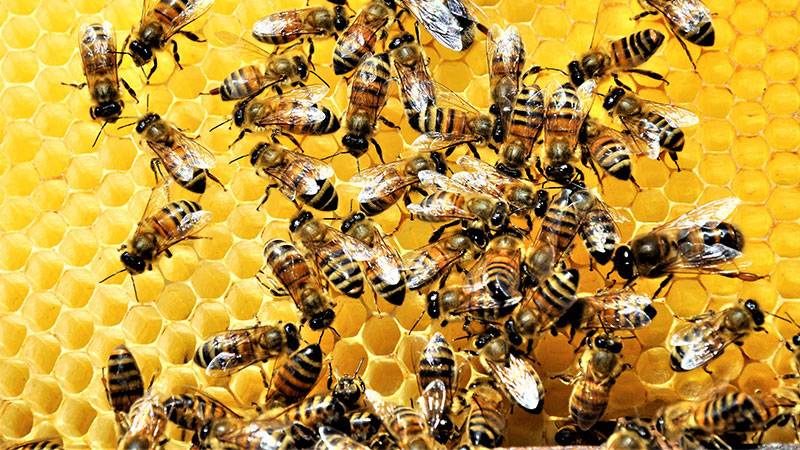Despite being allergic to honeybees, 20-year-old social entrepreneur Raina Singhvi Jain is on a mission to save these vital pollinators from alarming population declines.
Honeybees are instrumental to our global ecosystem, with 75% of the world’s crops relying on pollinators like them. Jain emphasizes the pivotal role of bees, stating, “Bees are the reason we have food.”
The root cause of the honeybee crisis can be traced to what Samuel Ramsey, a professor of entomology at University of Colorado Boulder’s BioFrontiers Institute, terms as the “three P’s”: parasites, pesticides, and poor nutrition. Predominantly, the Varroa destructor mite is a significant threat, weakening bee colonies by consuming their livers, thereby lowering their immunity, and introducing lethal viruses.
In a bid to tackle this challenge, Jain developed the HiveGuard during her high school junior year. This 3D-printed hive entrance is coated with thymol, a non-toxic, plant-based pesticide. As bees enter and exit through the HiveGuard, they come into contact with thymol, which effectively eliminates the Varroa mites without causing harm to the bees. Since its trial commencement in March 2021, HiveGuard has demonstrated a 70% reduction in mite infestations within three weeks of its installation, with no reported side effects.
Thymol’s use isn’t new in beekeeping, but Jain’s application method has garnered attention. Ramsey has recognized Jain’s method as a significant stride that combines efficiency with environmental safety.
Since March 2021, about 2,000 beekeepers have been beta testing the device, and Jain plans on an official release later this year. The data she has collected so far shows that three weeks after installation there’s a 70% decline in varroa mite infestations, with no reported side effects.
The decline in honeybee populations has profound agricultural implications. Bees are credited with pollinating over 130 different types of fruits, vegetables, and nuts. These tiny creatures play a monumental role in the American agricultural industry, with their pollination efforts estimated by the USDA at $15 billion annually. However, with the increasing costs of maintaining bee populations, consumer prices are also seeing a surge.
According to CNN, the ramifications of dwindling honeybee numbers stretch beyond economics. The UN Food and Agriculture Organization underscores the looming threats to food quality and security.
Beyond HiveGuard, Jain’s dedication to supporting honeybees extends to her 2020-founded company, Queen Bee, which offers health drinks infused with bee products. A portion of the company’s proceeds go towards planting pollinator trees in sub-Saharan Africa in partnership with the non-profit, Trees for the Future.
Jain remains hopeful for a balanced environment and stresses the importance of learning from honeybees’ societal structure. She highlights their intrinsic values of collaboration, delegation, and sacrifice for collective well-being.
More inspiring green news similar to this:


